Consult Kidney Transplantation Surgeons Online (14 doctors)

Dr. Santanu Sarkar
General Surgeon
19 Years • MBBS, MS Genral Surgery
Howrah
ILS HOWRAH., Howrah

Dr Col. Anannya Dutta
Transplant Specialist Surgeon
20 Years • MBBS, MD
Lucknow
Apollomedics Super Speciality Hospital, Lucknow
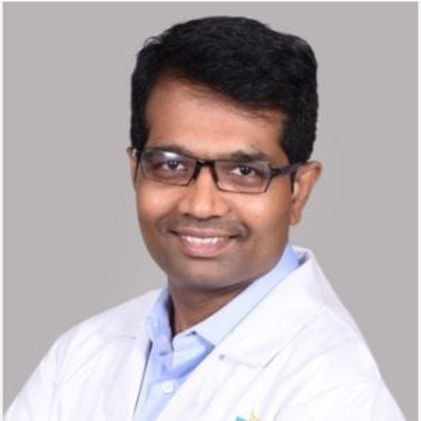
Dr. V Arun Kumar
Liver Transplant Specialist
12 Years • M.B.B.S, M.S (PGIMER), M.ch (AIIMS, Delhi)
New Delhi
Apollo Hospitals Indraprastha, New Delhi
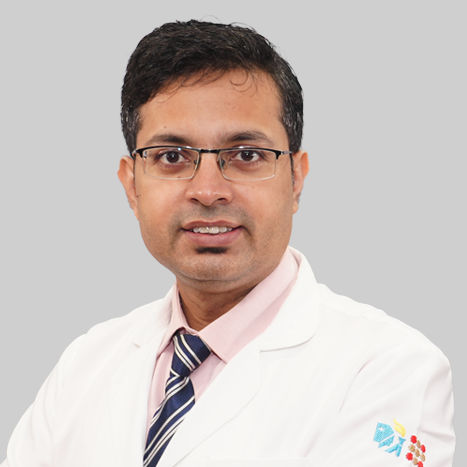
Dr Ved Bhaskar
Urologist
11 Years • MBBS, MS (Gen Surgery), MCh (Urology), Fellowship in Robotic Surgery
Lucknow
Apollomedics Super Speciality Hospital, Lucknow

Dr. Rohit Bhattar
Uro Oncologist
14 Years • MBBS, MS, MCh (Urology), Fellowship in Uro-oncology and Robotic Urology (United Kingdom)
Ahmedabad
Apollo Hospitals Gandhinagar, Ahmedabad
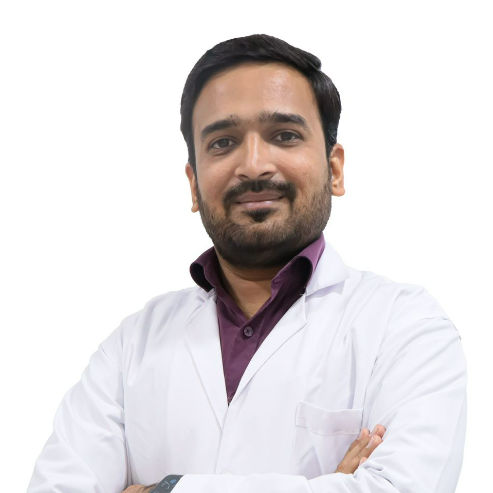
Dr. Dhruv B. Patel
Urologist
12 Years • MBBS, MS, DrNB (Urology - IKDRC, Ahmedabad)
Ahmedabad
Apollo Hospitals - Gandhinagar, Ahmedabad, Ahmedabad

Dr. Ashish Kumar Mishra
Liver Transplant Specialist
17 Years • DNB(General Surgery), DNB (Surgical Gastro), ASTS (Fellow Abdominal Transplant)
Lucknow
Apollomedics Super Speciality Hospital, Lucknow
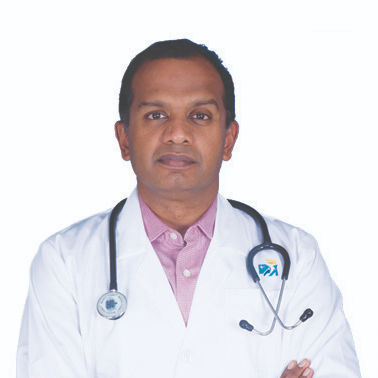
Dr. Jayanth Reddy
Liver Transplant Specialist
10 Years • MBBS, MS, DNB, MRCS, MCh (GI), FASTS
Bengaluru
Apollo Hospitals Bannerghatta Road, Bengaluru
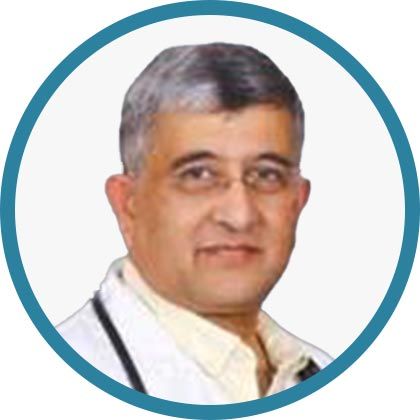
Dr. Sanjay Govil
Liver Transplant Specialist
32 Years • MBBS, MS, FRCS, Fellowships in Pancreatic Surgery, Liver Surgery and Liver Transplantation
Bengaluru
Apollo Hospitals Bannerghatta Road, Bengaluru
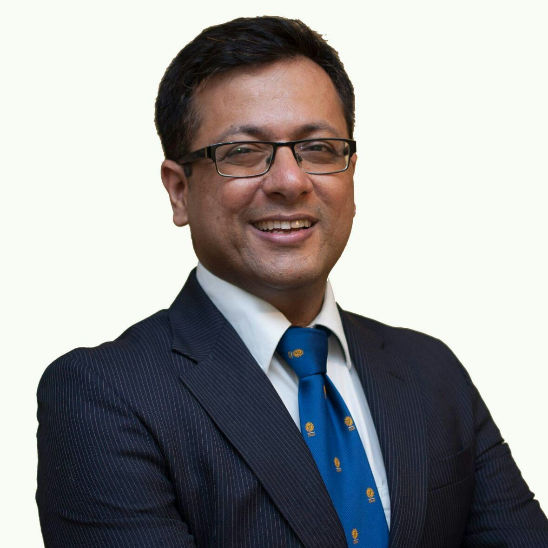
Dr. Sumit Gulati Laproscopic Gastro Surgeon
Liver Transplant Specialist
24 Years • MBBS, MS, MRCS ( Edinburgh, UK ) ,Diploma in Laparoscopic Surgery ( Dip Lap Surg ), Strasburg, France, Fellowship in Liver Transplantation & HPB ( Hepato Pancreato BIliary ) Oncosurgery ( Apollo, Delhi ); Earlier - Chesterfield Royal Hospital & Hull Royal Infirmary, England, UK
Kolkata
Apollo Multispeciality Hospitals , Kolkata, Kolkata

Dr. Sandeep Guleria
Transplant Specialist Surgeon
33 Years • MBBS, MS, DNB, FRCS, FRCP, MNAMS
New Delhi
Apollo Hospitals Indraprastha, New Delhi
450+ recommendations

Dr. Neerav Goyal
Liver Transplant Specialist
15 Years • MBBS, DNB, Dip in Gen Surg. & Surg. Gastro.
New Delhi
Apollo Hospitals Indraprastha, New Delhi
Dr Supriyo Ghatak. Gastroenterologist Surgeon
Liver Transplant Specialist
24 Years • MBBS , MS (PGI, Chandigarh), MCh in Gastro Intestinal ( GI ) Surgery (AIIMS); Training in Liver Transplant (King's College,London)
Kolkata
Apollo Multispeciality Hospitals , Kolkata, Kolkata
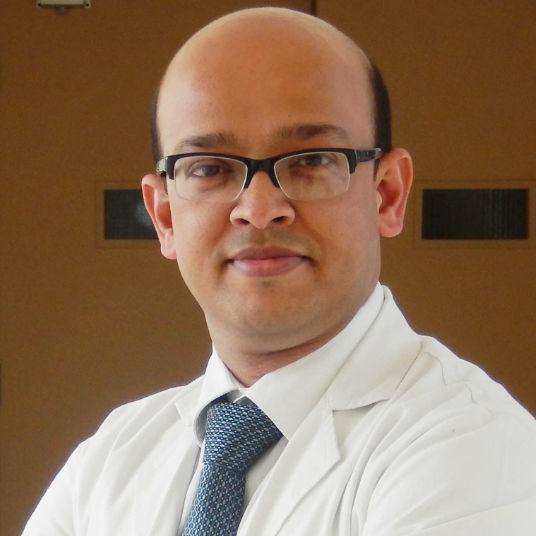
Dr Ramdip Ray. Surgeon. Gastro. Liver. Transplant.
Liver Transplant Specialist
24 Years • MBBS, MS , MRCS (England) Fellowship in Liver transplant & HPB (Hepato Pancreato Biliary) Oncosurgery (Apollo Delhi), Honorary Training in Upper Gastro Intestinal (GI) & Laparoscopic Surgery (Wrexham Maelor Hospital, Wales, UK)
Kolkata
Apollo Multispeciality Hospitals , Kolkata, Kolkata
Transplant Surgery
Booking an appointment with a top transplant surgeon is now easier than ever with Apollo 24|7. Our user-friendly platform allows you to schedule an online or in-person consultation with experienced transplant surgeons at trusted hospitals and clinics. With a wide range of convenient appointment slots available, you can choose a time that suits your schedule. Our transplant surgeons are highly skilled in performing various transplant procedures and providing comprehensive pre- and post-operative care. Don't wait any longer; book your appointment with a leading transplant surgeon at Apollo 24|7 today and take the first step towards a healthier future.
What is Transplant Surgery?
Transplant surgery is a specialised medical procedure that involves transferring organs, tissues, or cells from a donor to a recipient to restore health or function. This field plays a crucial role in healthcare by providing life-saving treatments for patients whose organs have failed or have been damaged by severe illness or injury.
Transplant surgery can involve various organs such as the kidney, liver, heart, and lungs, as well as tissues like bone marrow. It stands as a testament to the advancements in medical science, offering hope and improved quality of life to many patients.
The success of transplant operations depends significantly on the compatibility between the donor and recipient, as well as the timing of the surgery.
Who is a Transplant Surgeon?
A transplant surgeon is a highly trained specialist who performs organ and tissue transplants. They must complete extensive medical training, including a degree in medicine, followed by specialised training in surgery and further focus in transplant surgery. These surgeons are skilled in managing complex surgical procedures and post-operative care.
They work closely with other healthcare professionals to assess patients' suitability for surgery, manage the transplant process, and provide follow-up care to prevent rejection of the transplanted organ.
Transplant surgeons are crucial in treating conditions such as end-stage organ failure, thereby significantly enhancing patient survival and quality of life.
What Does a Transplant Surgeon Do?
A transplant surgeon's work is critical in providing a new lease on life for patients suffering from severe organ failures. The role is not only technically demanding but also requires a high level of compassion and precision.
Key Responsibilities:
Pre-Operative Assessment: Transplant surgeons evaluate patients to determine their suitability for surgery. This includes reviewing medical histories, conducting physical examinations, and collaborating with other healthcare professionals to assess the risks and benefits of the procedure.
Surgical Procedures: They perform the transplant operations, which involve removing the organ from the donor and implanting it into the recipient. This process requires meticulous surgical skills to ensure the compatibility and functionality of the transplanted organ.
Post-Operative Care: After the surgery, transplant surgeons monitor patients closely to manage any complications such as rejection of the new organ and infections. They adjust medications to suppress the immune system and prevent rejection, ensuring the patient's body accepts the new organ.
Research and Development: Many transplant surgeons are also involved in research activities to innovate and improve transplant techniques. They stay updated with the latest advancements in transplant medicine to enhance patient outcomes.
Education and Mentoring: Senior transplant surgeons often take on roles that involve teaching and mentoring upcoming surgeons in the field, sharing their knowledge and experiences to train the next generation of medical professionals.
Transplant surgeons provide comprehensive care that extends beyond the operating room, playing a crucial role in both the physical and psychological recovery of patients. Their dedication and expertise are vital in transforming and saving lives.
What are the Other Sub-specialities of Transplant Surgery?
Transplant surgery encompasses various subspecialities, each targeting specific organs or patient groups. Here's a closer look at these crucial areas:
Liver Transplant Surgery: This sub-speciality focuses on replacing a diseased liver with a healthy one from a donor, performed by a highly skilled liver transplant surgeon. It is often a lifesaving intervention for conditions like liver cirrhosis or liver cancer.
Kidney Transplant Surgery: A kidney transplant surgeon carries out these surgeries, transplanting a kidney from a living or deceased donor to a patient suffering from end-stage renal disease. This procedure offers a new chance at life for those experiencing severe kidney failure.
Heart Transplant Surgery: Specialists in this field replace failing hearts with healthy ones. This surgery is typically reserved for patients with end-stage heart failure or severe heart disease.
Lung Transplant Surgery: This involves the transplantation of one or both lungs, often necessary for patients with chronic obstructive pulmonary disease (COPD). A surgeon for lung transplant in COPD manages the complex needs of these patients.
Pancreas Transplant Surgery: This surgery is usually performed to treat type 1 diabetes and is often done alongside kidney transplant. It's a crucial option for those whose conditions cannot be managed with standard treatments.
Intestinal Transplant Surgery: Intestinal transplantation is considered for patients with short bowel syndrome or other severe intestinal disorders that impair normal digestion and absorption of food.
Bone Marrow Transplant: This procedure involves transplanting blood stem cells and is typically carried out by a doctor for organ replacement. It's used to treat various cancers and other disorders affecting blood cell production.
Multi-Organ Transplant Surgery: This sub-speciality involves the simultaneous replacement of two or more organs, requiring complex coordination and expert surgical skills by a surgeon for organ donation procedures.
Paediatric Transplant Surgery: This sub-speciality focuses on the unique transplant needs of children, ranging from infants to adolescents, adapting procedures for smaller bodies and specific paediatric conditions.
Each sub-speciality not only demands technical prowess but also a profound commitment to patient care, encompassing both surgical execution and ongoing post-operative management.
What are the Transplant Surgery Examinations or Tests Performed by the Transplant Surgeon?
Transplant surgeons utilise a range of diagnostic tests and examinations to determine the suitability of patients for transplant surgery and to monitor their post-operative recovery. These assessments are critical in ensuring that patients receive the most appropriate and effective treatment.
Here's an overview of the most common examinations conducted within this field:
Blood Tests: Comprehensive blood tests are essential to assess the overall health of both donors and recipients. They help determine blood type compatibility, the presence of infection, and the functionality of various organs.
Imaging Tests: Imaging tests such as X-rays, CT scans, MRI scans, and ultrasounds are used to get a detailed view of the organs. These tests help evaluate the structure and condition of potential donor organs and identify any abnormalities that might complicate the transplant process.
Biopsies: A biopsy involves taking a small sample of tissue from the organ in question, which is then examined under a microscope. This test is crucial for determining the extent of organ damage or disease, such as in liver or kidney biopsies.
Tissue Typing: This test is done to match organ and tissue compatibility between the donor and the recipient, reducing the risk of rejection. It includes HLA (human leukocyte antigen) typing.
Crossmatch Test: This test checks whether the recipient's immune system will accept or reject the donor's organ. A negative crossmatch indicates that the transplant can proceed without an increased risk of organ rejection.
Heart and Lung Function Tests: These tests, including echocardiograms and pulmonary function tests, assess the health and functionality of the heart and lungs, respectively, especially crucial for heart and lung transplant candidates.
Viral Tests: These tests are conducted to check for viruses that can affect the success of the transplant, such as HIV, hepatitis B, and hepatitis C.
When you book a transplant surgeon, they will determine which of these tests are necessary based on the specific organ involved and the individual circumstances of the patient and donor. Additionally, a doctor for kidney failure transplant may require specialised tests like renal function tests to assess the urgency and suitability of the transplant for renal patients.
What are the Common Conditions & Diseases that Transplant Surgeons Treat?
Transplant surgeons are specialised in treating a variety of severe conditions that cause organ failure, necessitating organ transplants. Here are the top 15 conditions managed by these specialists:
Chronic Kidney Disease: Progressive loss of kidney function over time.
Liver Cirrhosis: Scarring of the liver which impedes its ability to function.
Congestive Heart Failure: The heart’s inability to pump blood effectively.
Chronic Obstructive Pulmonary Disease (COPD): A group of lung conditions that block airflow and make breathing difficult.
Type 1 Diabetes: A condition in which the pancreas produces little or no insulin.
Coronary Artery Disease: Impaired blood flow to the heart muscle due to the narrowing of the coronary arteries.
Hypertrophic Cardiomyopathy: A disease where the heart muscle becomes abnormally thick.
Idiopathic Pulmonary Fibrosis: A chronic, progressive lung disease that causes scarring of the lungs.
Cystic Fibrosis: A genetic disorder affecting the lungs and other organs.
Primary Biliary Cholangitis: A chronic disease that destroys bile ducts in the liver.
Polycystic Kidney Disease: An inherited disorder causing numerous cysts to grow in the kidneys.
Amyloidosis: A condition where protein accumulates in organs, impairing their function.
Pulmonary Hypertension: High blood pressure in the blood vessels that supply the lungs.
Leukaemia: Cancer of the body's blood-forming tissues, including the bone marrow.
Scleroderma: A group of autoimmune diseases that may result in changes to the skin, blood vessels, muscles, and internal organs.
Reasons to See a Transplant Surgeon
There are several critical reasons to consult a transplant surgeon, typically when a patient is facing end-stage organ failure that cannot be managed through medication or other treatments. Reasons to see these specialists include:
Persistent Symptoms: Symptoms like severe fatigue, inability to perform daily activities, or significant pain that are indicative of organ failure.
Progressive Organ Damage: Ongoing health conditions that have led to significant organ damage, such as severe liver cirrhosis or advanced heart failure.
Genetic Conditions: Genetic disorders like cystic fibrosis or polycystic kidney disease, which may eventually require organ transplants.
If you're facing such severe health issues, an online transplant surgeon consultation can be a crucial step in managing your condition and exploring treatment options.
What Types of Procedures do Transplant Surgeons Perform?
Transplant surgeons are highly skilled in a range of procedures that are critical to the transplantation of organs and the management of associated conditions. Their expertise is divided into two main categories: top therapies and top surgeries.
Each category involves specific procedures tailored to enhance patient outcomes in transplant medicine.
Top Therapies:
Immunosuppressive Therapy: Medication regimen to prevent organ rejection.
Dialysis: Temporary treatment for kidney failure while waiting for a transplant.
Photopheresis: Blood purification technique used particularly in stem cell transplants.
Plasmapheresis: Removal of plasma from the blood to treat immune-related conditions.
Bone Marrow Aspiration: Diagnostic procedure to assess the health of bone marrow.
Gene Therapy: Experimental technique aimed at replacing defective genes responsible for disease development.
Conditioning Regimens: Preparative treatments before bone marrow or stem cell transplants.
Top Surgeries:
Kidney Transplant: Surgery to replace a diseased kidney with a healthy one from a donor.
Liver Transplant: Replacement of a failing liver with one that is healthy.
Heart Transplant: Surgical replacement of a diseased heart with a healthy donor heart.
Lung Transplant: Transplantation of one or both lungs from a donor.
Pancreas Transplant: Surgery to replace a diseased pancreas, often combined with kidney transplant.
Intestinal Transplant: Replacement of the small intestine for patients with severe intestinal diseases.
Corneal Transplant: Replacement of damaged cornea to restore vision.
Multi-organ Transplant: Simultaneous transplantation of multiple organs, such as liver and kidney, depending on patient needs.
Each of these procedures requires a high level of expertise, and the transplant surgeon fee reflects the complexity and critical nature of these life-saving interventions. Whether through therapeutic management or surgical procedures, transplant surgeons play a pivotal role in extending and enhancing the quality of life for patients with severe organ damage or failure.
Why Choose an Apollo 24|7 Transplant Surgeon?
Transplant surgeons at Apollo 24|7 are highly qualified and experienced professionals who offer several advantages. They have extensive training and expertise in transplant surgery, ensuring they are well-equipped to handle complex procedures. Patients receive personalised care with individualised treatment plans tailored to their specific needs and conditions.
Moreover, these surgeons have access to the latest surgical techniques and advancements in transplantation medicine, including minimally invasive procedures.
With seamless access to consultations, both online and in-clinic, Apollo 24|7 transplant surgeons provide comprehensive healthcare solutions for patients in need of organ transplantation.
What to Expect When Visiting a Transplant Surgeon?
Visiting a transplant surgeon can be a pivotal step for patients facing serious organ health issues. The visit typically involves detailed assessments, thorough consultations, and the development of a tailored treatment plan.
Initial Consultation: Expect a comprehensive review of your medical history and current health status to assess your suitability for a transplant.
Diagnostic Tests: Various tests, such as blood tests, imaging scans, and biopsies, may be conducted to determine the state of your organs.
Treatment Planning: The surgeon will discuss potential treatment options, including the possibility of a transplant and the associated risks and benefits.
Follow-up Appointments: Regular follow-ups to monitor your health and any progress towards transplantation.
Patients should also consider checking transplant surgeon reviews to choose a specialist with a strong track record of successful outcomes. When searching for a specialist, using terms like transplant surgeon near me can help locate experienced surgeons in your vicinity.
Each visit aims to ensure that all your concerns are addressed and that you are fully informed about your treatment options.
How Can I Get an Appointment With a Transplant Surgeon?
To book an appointment with a transplant surgeon at Apollo 24|7, you have several convenient options:
Online booking: Visit the Apollo 24|7 website and navigate to the "Book Appointment" section. Select "Transplant Surgery" as the speciality and choose your preferred surgeon, date, and time slot.
Mobile app: Download the Apollo 24|7 mobile app from the App Store or Google Play. Log in or create an account, select "Transplant Surgery," and follow the prompts to book your appointment.
Via Call: Contact Apollo 24|7 at the provided number and speak with a representative who will assist you in scheduling your appointment with a transplant surgeon.
Referral: If your primary care physician or another specialist has referred you to a transplant surgeon, they may help you arrange an appointment directly with the surgeon's office.
Transplant Specialist Surgeons in Other Top Cities
Doctors in Top cities
- •Top Doctors in Hyderabad
- •Top Doctors in Bengaluru
- •Top Doctors in Chennai
- •Top Doctors in Kolkata
- •Top Doctors in East Godavari
- •Top Doctors in Mumbai
- •Top Doctors in New Delhi
- •Top Doctors in Bangalore
- •Top Doctors in Delhi
- •Top Doctors in Pune
- •Top Doctors in Gurugram
- •Top Doctors in Noida
- •Top Doctors in Ahmedabad
- •Top Doctors in Lucknow
- •Top Doctors in Ghaziabad
- •Top Doctors in Visakhapatnam
- •Top Doctors in Guwahati
- •Top Doctors in Madurai
- •Top Doctors in Bhubaneswar
- •Top Doctors in Vijayawada
Related Treatments
- •Treatment for Cirrhosis
- •Treatment for Hemochromatosis
- •Treatment for Hepatitis B
- •Treatment for Liver disease
- •Treatment for Anal fistula
- •Treatment for Anxiety Urination
- •Treatment for Bladder Control
- •Treatment for Blood In Semen
- •Treatment for Blood In Urine
- •Treatment for Blood in urine hematuria
- •Treatment for Blood In Urine Hematuria Treatment
- •Treatment for Brachydactyly
- •Treatment for Chronic pelvic pain in women
- •Treatment for Ectopic Ureter
- •Treatment for Female Sexual Problems
- •Treatment for Lithotripsy
- •Treatment for Litotripsia
- •Treatment for Loss Of Libido
- •Treatment for Male Menopause
- •Treatment for Male Sexual Problems
FAQs
What is transplant surgery?
Transplant surgery involves replacing a diseased or failing organ with a healthy one from a donor. It aims to restore function and enhance the quality of life for patients with severe organ damage or failure due to conditions like chronic disease or injury.
What is the most common transplant surgery?
The most common transplant surgery is the kidney transplant. It is frequently performed to treat patients with end-stage renal disease, where the kidneys can no longer function properly on their own, requiring either dialysis or transplantation to sustain life.
Is transplant surgery risky?
Transplant surgery carries significant risks, including complications from the surgery itself, the possibility of organ rejection, and side effects from lifelong immunosuppressive medication. However, the benefits often outweigh the risks for patients facing life-threatening organ failures.
Is transplant surgery a major surgery?
Yes, transplant surgery is considered major surgery. It involves complex procedures that require careful planning and preparation, skilled surgical execution, and extensive post-operative care to manage risks and ensure the success of the organ transplant.
Is transplant surgery painful?
Transplant surgery, like any major surgery, can be painful. However, pain management protocols are effectively implemented to control pain post-surgery. Patients receive medications to manage discomfort and aid recovery during the hospital stay and the healing process.
Which organ is difficult to transplant?
The small intestine is considered one of the most difficult organs to transplant successfully due to the complexity of the surgery and the high risk of infection and rejection. The procedure requires careful coordination and long-term management.
Which organ is easiest to transplant?
The cornea is often considered the easiest organ to transplant, due to the simplicity of the procedure and the body's tendency to accept the new tissue with minimal risk of rejection. Corneal transplants have a high success rate and can significantly improve vision.
How do transplant surgeons work with other healthcare professionals?
Transplant surgeons work closely with a multidisciplinary team that includes nephrologists, hepatologists, cardiologists, pulmonologists, immunologists, transplant coordinators, and other specialists. They collaborate to evaluate potential transplant recipients, manage their pre- and post-operative care, and monitor their long-term health and well-being.
What is the role of a transplant surgeon in living donor transplants?
In living donor transplants, transplant surgeons play a crucial role in evaluating the suitability of potential donors, explaining the risks and benefits of the procedure, and obtaining informed consent. They perform the surgical procedures to remove the organ from the donor and implant it into the recipient, ensuring the safety and well-being of both individuals.
What is the transplant surgeon's role in post-operative care?
After the transplant surgery, the transplant surgeon closely monitors the patient's recovery, manages any complications that may arise, and adjusts the immunosuppressive medication regimen as needed. They work with the multidisciplinary team to ensure that the patient receives comprehensive care and support throughout the recovery process.